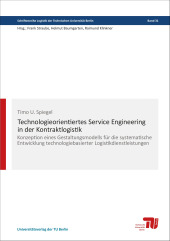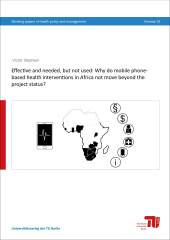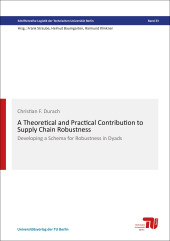Analysis and design of value production strategies and business models in the telecommunications industry

Format: 14,8 x 21,0 cm
Publishing year: 2012
This cumulative dissertation contains a collection of articles, which address strategic challenges of firms in the telecommunications sector from different perspectives and with heterogeneous research methodologies. One research focus is the analysis of the impact of sector convergence in the ICT industry on the competitive environment and value production strategies of telecommunication firms. Traditional value production strategies are more and more challenged due to an increasing competition and intensifying inter-firm interdependencies of ICT firms from the formerly relatively autonomous sectors software, hardware, telecommunications and media. It is shown in this dissertation, that sector convergence has an influence on diversification performance of ICT firms. The role of software development and application operation in the value creation of ICT firms is further analyzed. The results show a strong importance of software based applications for telecommunication firms. An in-depth assessment of crosssector competition in telecommunications demonstrates a strong mutual competition of media and telecommunication firms. In order to support the realization of the business potential, which results from sec-tor convergence, a methodology for a demand-oriented identification of modular wholesale services is designed. A second research focus addresses the technological and economic approaches to and chal-lenges of IP service distribution. In addition to the distribution of services over centralized Internet servers, there are alternative distribution approaches, which use dedicated transport capacities or distributed server infrastructures. An exploratory analysis shows that business models for service distribution differ significantly from each other. They, however, address similar consumer requirements with regard to distribution quality and costs. An in-depth eval-uation of the value propositions of distribution technologies shows that their suitability domi-nantly depends on different characteristics of service production and consumption. The intro-duction of a quality differentiation on the data transport level across a single operator’s net-work boundaries (inter-provider Quality-of-Service) requires a novel interconnection regime. Such a new regime, in contrast to the present interconnection regime in the Internet, must set incentives for a compliance to quality assurances and support a differentiated pricing. The simulation based assessment of a market scenario for the introduction of inter-provider Quali-ty-of-Service describes the impact of regime design on the competitive position of access and transit service providers in the interconnection market. This dissertation is written in English, because the majority of articles included were submit-ted in English. The dissertation incorporates just one German article, which has not been translated.



